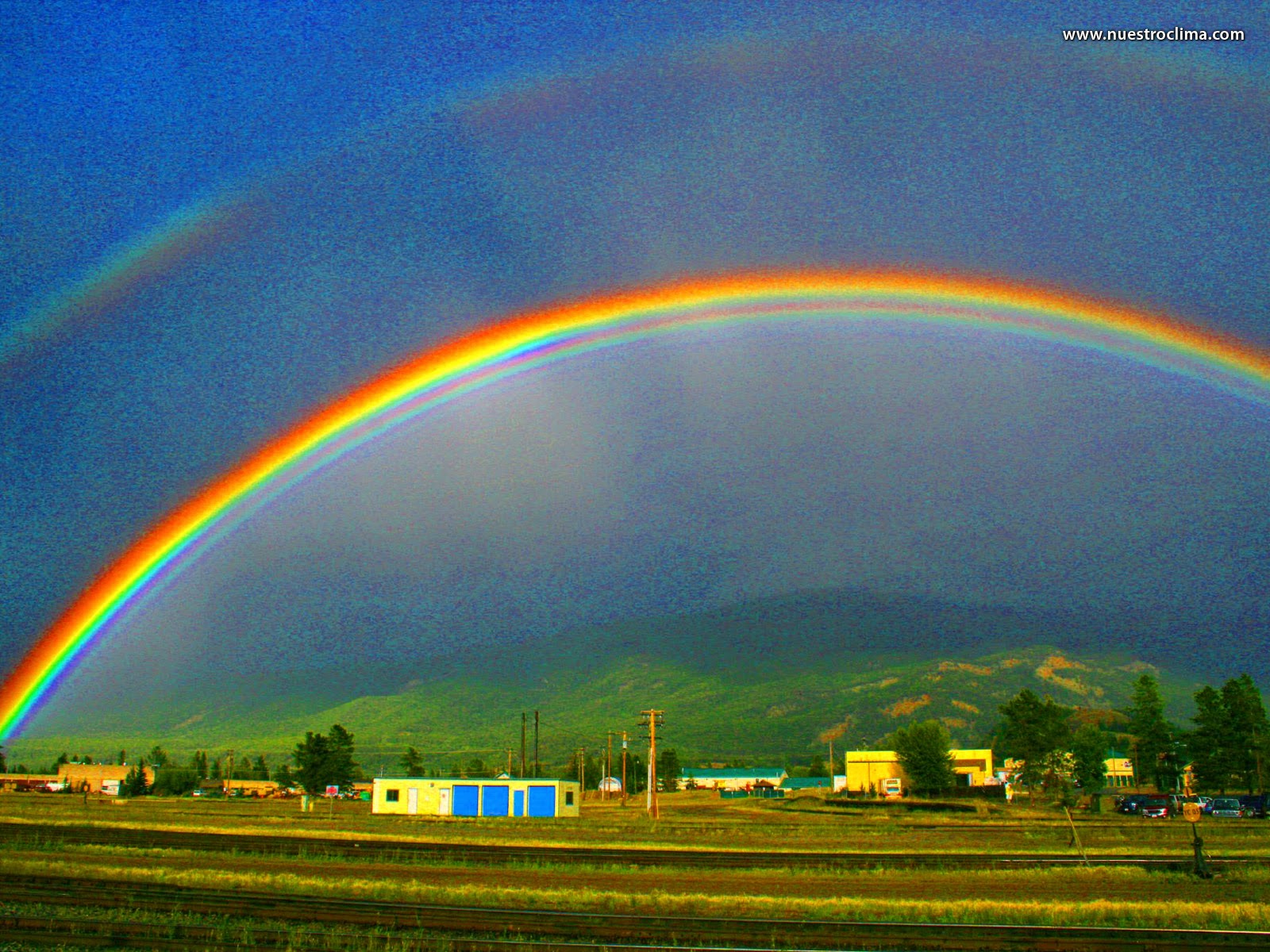
Arco Iris
Las 5 más tocadas de Arco iris
Bio
Arco Iris fue una banda de rock argentino formada en 1968 en el la localidad de El Palomar en el Gran Buenos Aires, integrada por Gustavo Santaolalla (guitarra y voz), el egipcio Ara Tokatlian (vientos), Guillermo Bordarampé (bajo), Horacio Gianello (batería y percusión), y Danais Winnycka (Dana) (guía espiritual). Es considerado uno de los grupos fundacionales del rock argentino, aportando un misticismo y sobre todo la idea de fusión del rock con ritmos folklóricos que contrastaba con otros referentes de la época, como Los Gatos, Almendra, Manal o Vox Dei.
Miembros:
Gustavo Santaolalla (voz y guitarra)
Ara Tokatlian (vientos)
Horacio Gianello (batería y percusión)
Guillermo Bordarampé (bajo)
Discografía oficial
Simples de 1969
Blues de Dana (1970)
Arco Iris (1970)
Simples de 1971
Simples de 1972
Sudamérica o el regreso a la Aurora (1972)
Tiempo de resurrección (1972)
Simples de 1973
Inti-Raymi (1973)
Agitor Lucens V (1975)
Inspiración (1976)
Los Elementales (1977)
Mañana Campestre (1979)
Peace Pipes (Pipas de la Paz) (1988)
Cronología II (1993)
Peace will save the Rainbow (1996)
Arco Iris en Vivo Hoy (2000)
En Vivo, Arco Iris (2000)
ARCO IRIS
GUSTAVO SANTAOLALLA (g, v) AB
ARA TOKATLIAN (winds, k, v) AB
GUILLERMO BORDARAMPÉ (b, v) AB
ALBERTO CASCINO (d) A
HORACIO "DROPPY" GIANELLO (d) B
Gustavo Alfredo Santaolalla, together with church fellows Tokatlian and Bordarampé, formed several bands in the 60s (The Rovers, The Blackbyrds, The Crows) to play covers and, later on, his own songs. After recording a 3-song demo tape, they met producer Ricardo Kleinman (owner of the successful radio show Modart en la Noche) who agreed to sign them with the condition that they sing in Spanish… and change their name! So Arco Iris recorded two late-60s pop tunes: "Lo veo en tus ojos" and "Canción para una mujer" (no relation with the Vox Dei song with the same name) with orchestral arrangements by Rodolfo Alchourrón (another Kleinman demand -note the great similarities with the first Almendra single!). The b-side is one of my personal favourites. Months later Arco Iris released a second disappointing single and met former model Danais Wynnycka (a.k.a. Dana) who became their "spiritual guide" and began to live in community with her. Their next single, "Blues de Dana" (obviously dedicated to the beautiful lady) reflected changes in the music as well. This 5-minute guitar blues won the Mar del Plata Beat Festival. By the end of 1969 Arco Iris began sessions for their first LP, to be released in May 1970. The pink cover showed a triangular logotype that represents the philosophy of the group. The album includes some very beautiful songs penned by Santaolalla in a vocal pop-folk style with both acoustic and electric instruments. Among them "Hoy te miré", "Te quiero, te espero", "Canción de cuna para un niño astronauta", "Tiempo", and the lengthy "Y ahora soy". The latter sort of previewed the instrumental development of future releases. Alberto Cascino quit unease with the "community life" (this is the reason why he is not in the album cover). Several drummers replaced him until "Droppy" Gianello took the job. Arco Iris kept working at the studio, and released a single in January 1971: "Es nuestra la libertad" b/w "Zamba", which showed their first attempt to mix rock with argentine folkloric music -style they developed ever since. At this point they changed the record company. Now in Music Hall label, they cut a highly successful single, the now classic "Mañana campestre" (with a non-LP b-side and PS). Their former label issued Suite Nº1 (RCA Vik LZ-1210), an album of singles and unreleased tracks (some sung in English!) from their first LP. ("Woman" is the English version of "Tiempo" and "And I want" is the English version of "Y ahora soy"). RCA also issued yet another LP of singles and LP tracks called Blues de Dana (Groove 80020). At the same time, Tiempo de Resurreción, their first album for Music Hall hit the stores. To mess things a little bit more, this record included a new version of "Blues de Dana", along with "Mañana campestre". The new folkloric-rock fusion was now clear, with the increasing use of saxophones and the distinguishing Santaolalla electric guitar. To sum up an intense year they released a non-album PS 7" ("Llegó el cambio") and a 2-LP box set: Sudamérica o el Regreso a la Aurora -a Latin-American rock opera. Sudamérica, probably the highest point of Arco Iris’ career, was an ambitious work both in musical and ideological aspects. It tells the deep political standpoint story of a heterogeneous group of pilgrims at the verge of the resurgence of an Old Latin-American Empire in a New Era. Musically, it achieves an excellent mixture between different Latin-American folkloric rhythms along with rock, blues and jazz using a wide range of native instruments. A truly masterpiece in it’s own style. Although it is a whole work, we can single-out tracks like the bluesy "La canción de Nahuel", the beautiful "Gira", the continuity of "Sígueme", "El negro" and the rhythmically rich "Los campesinos y el viajero", the brave "Sálvense ya", the lengthy "Hombre" (featuring a great fuzz guitar solo), "Persecución de los peregrinos" (with killer guitar), and the superb carnavalito finale "Sudamérica" (also released as a PS single). (Carnavalito is an uptempo dance style from the Altiplano -at the Northwest of Argentina and South of Bolivia and Peru). Sudamérica o el Regreso a la Aurora is, in short, a highly recommended album for those willing for new -and I mean NEW- sounds. An instrumental percussion fragment of "Hombre" is played live on the movie Rock hasta que se ponga el Sol (filmed at the BARock Festival), thought it is not included on the Soundtrack LP. The next album, Inti Raymi, carried on with the folkloric-rock ideological style. A good record altogether though not as good as its predecessor. Both Sudamérica and Inti Raymi feature great cover artwork, based on pre-Columbus motives. The original edition of Sudamérica was released in a box -it was later reissued with a foldout cover- and included a poster. At this point, Arco Iris was also known for their highly controversial live appearances. Their next step was another 2-LP conceptual opus: Agitors Lucens V. Not exactly an opera, the "story" this time was based in the alleged relationship between the pre-Columbus native culture and visitors from outer space. Without losing their identity, the music was more symphonic oriented with long instrumental segments and heavier use of keyboards. To promote this interesting album, Arco Iris joined efforts with reputed argentine choreographer Oscar Araiz and played some unforgettable ballet and group shows. Unexpectedly, Santaolalla -the indisputable leader- and Gianello quit to form Soluna. Tokatlian and Bordarampé recruited other musicians and released the disappointing jazz-rock oriented Los Elementales (Cabal 9013) together with a PS single ("Sin contratiempos" b/w "Los del casco de oro"- Cabal 101). Later they moved to California (USA) and got involved in the jazz-rock and new age scene (Dana still with them!). Way back in 1973, Tokatlian and Bordarampé recorded an LP with argentine jazz pianist Enrique "Mono" Villegas titled Inspiración. One oddity to point out is that Sudamérica… was also entirely re-recorded with English lyrics for a foreign release, but the record company shelved this project. During one of the regular reissues of this album in the late 70s, someone made a mistake picking the master tapes and the English version was cut on vinyl and thus released… but with the regular Spanish cover and the regular reissue label number! (Music Hall 90970-1). This short living reissue is extremely hard to get now! The rest of the records have not been reissued on vinyl. A good compilation is Mañana Campestre (MusicHall 2649-1) released in 1979 featuring album and non-LP tracks. All the RCA recordings are available on two separate CDs. Tiempo de Resurrección and Sudamérica are also available on CD.
ALBUMS
1970 - ARCO IRIS (RCA Vik LZ-1165) A
1972 - TIEMPO DE RESURRECCIÓN (Music Hall 13000) B
1972 - SUDAMÉRICA O EL REGRESO A LA AURORA (dbl) Box (Music Hall 2395/6) B
1973 - INTI RAYMI (Music Hall 13059) B
1975 - AGITOR LUCENS V (dbl) (Music Hall 14147/8) B
SINGLES
1969 - Lo veo en tus ojos/ Canción para una mujer (RCA Vik 31Z-1486)
1969 - Solo tengo amor/ Luisito cortate el pelo (RCA Vik 31Z-1569)
1970 - Blues de Dana/ Quién es la chica (RCA Vik 31Z-1639)
1971 - Es nuestra la libertad/ Zamba (RCA Vik 31Z-1814)
1971 - Mañana campestre/ Soy un pedazo de sol (Music Hall 31751)
1972 - Llegó el cambio/ El niño, la libertad y las palomas (Music Hall 31888)
1972 - Hoy he visto al rey (Gira)/ Sudamérica (Music Hall 32044)
1973 - Detrás/ La savia verde ( Music Hall 32180)
Taken from: The Magic Land; A guide to Beat, Psychedelic and Progressive Rock music between 1966 & 1977 in Argentina and Uruguay - by: Marcelo Camerlo
Discografía
Artistas Relacionados
-
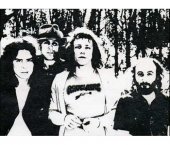 Aquelarre
Aquelarre
-
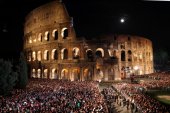 Crucis
Crucis
-
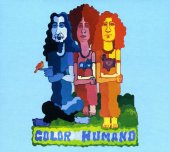 Color Humano
Color Humano
-
 Pastoral
Pastoral
-
 Polifemo
Polifemo
-
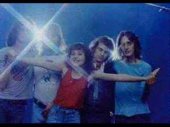 Porsuigieco
Porsuigieco
-
 Rayuela
Rayuela
-
 David Lebon
David Lebon
-
 Vivencia
Vivencia
-
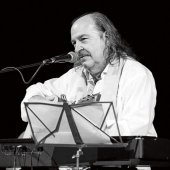 Litto Nebbia
Litto Nebbia
-
 Pablo El Enterrador
Pablo El Enterrador
-
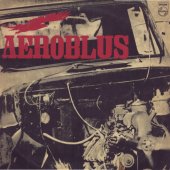 Aeroblus
Aeroblus
-
 Claudio Gabis
Claudio Gabis
-
 Tantor
Tantor
-
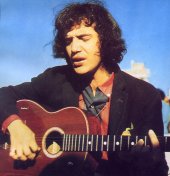 Tanguito
Tanguito
-
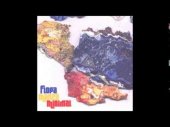 Flopa Manza Minimal
Flopa Manza Minimal
-
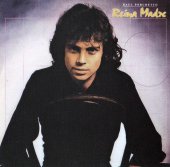 Raul Porchetto
Raul Porchetto
-
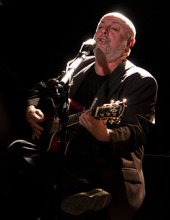 Juan Carlos Baglietto
Juan Carlos Baglietto
-
 Skay Beilinson
Skay Beilinson
-
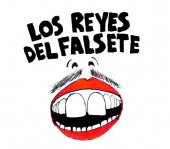 Los Reyes Del Falsete
Los Reyes Del Falsete
-
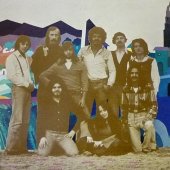 Soluna
Soluna
-
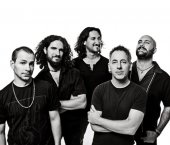 Arbolito
Arbolito
-
 Francisca Y Los Exploradores
Francisca Y Los Exploradores
-
 Invisible
Invisible
-
 Indio Solari
Indio Solari
-
 Los Brujos
Los Brujos
Usamos cookies. Leer más